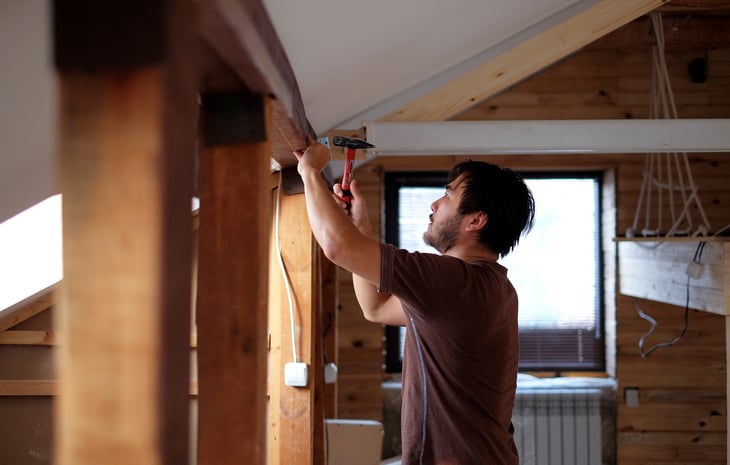
Editor's Note: This story originally appeared on Point2.
If the TV shows are anything to go by, flipping houses is a shortcut to making your first million.
But in reality, there are many things to consider and tricks of the trade to know if you’re going to make it work.
So, if you’re wondering how to flip houses, it’s essential to do your research and go into it with your eyes wide open. With that in mind, let’s find out all you need to know.
Things to Consider When House Flipping
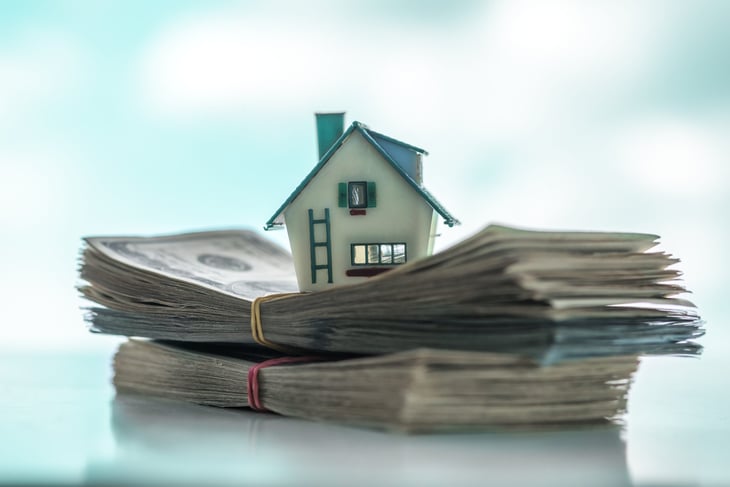
Before making any hasty decisions, think long and hard about what it means to become a house-flipping real estate investor.
1. Think About Your Current Job

First, you need to decide whether you’ll keep your current job and attempt to flip houses on the side, or if you’ll make house flipping a full-time job.
Of course, both options have their pros and cons, but in a nutshell, house flipping is time-consuming and expensive, so keeping a steady income stream will help ease the financial burden.
At the same time, working on house flipping in your spare time can be exhausting.
2. Budget and Financing

When you budget for a house to flip, you’ll need to think about several additional costs compared to buying a home to live in:
- Building materials and tools
- Contractors for any work you can’t do yourself
- Selling costs
- Holding costs (property taxes, insurance, utilities, etc.)
It’s also important to understand that house flipping is seen as very risky for conventional lenders, meaning that it can be challenging to obtain financing. So the best advice is to buy the property outright without taking out a mortgage. In this case, you’ll need hard cash.
That doesn’t necessarily mean you must sink all your life savings into the venture. For example, some hard money lenders specialize in lending to flippers. Otherwise, you could seek an investor or partner up with friends or family.
3. Learn the 70% Rule

Following the 70% rule will give you the best chance of success when flipping houses. It should become the cornerstone of your budget, enabling you to accurately determine the maximum price you should pay for a property. So how does it work?
Essentially, you need to ensure that the purchase price of a property is no more than 70% of the after-repair-value (ARV) minus the renovation costs.
So, for example, if you’re interested in a home with an ARV of $200,000 that requires $25,000 worth of repairs, your maximum purchase price should be no more than $115,000.
This gives you a large buffer zone, so if renovation costs run higher, there’s far less risk of losing money. To follow the rule, you need to have an accurate idea of the home’s true value after it’s been repaired, as well as experience in estimating repair costs.
4. Understand Location

Location is everything when it comes to flipping houses. Look out for up-and-coming markets by seeing how long homes typically spend on the market, as well as what type of properties are being sold.
Also, keep an eye on what amenities exist in the area and if any are being planned. For example, schools, parks and shopping centers typically increase property values.
5. Be Realistic About the Timeline
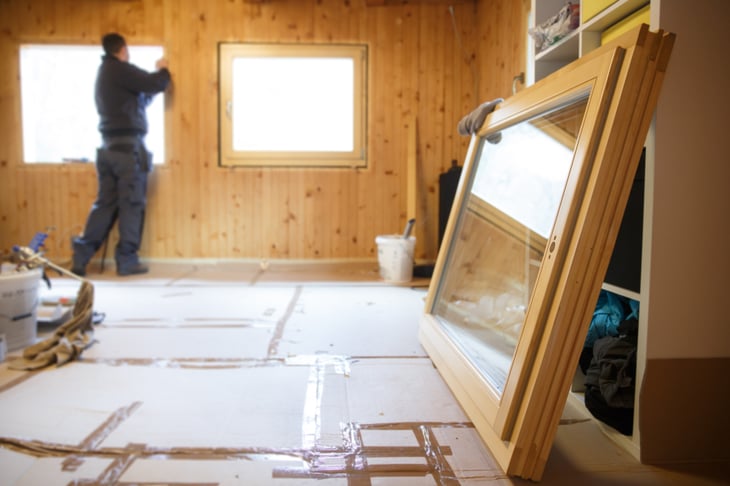
Establishing an accurate timeline is essential. All the time the property is in your name, you’ll pay utilities, taxes, insurance, loan repayments, etc. So, if your timeline is off, it will greatly impact your budget. On average, you can expect the following:
- Loan approval = 2 weeks
- Making an offer and gaining ownership = 30 to 60 days
- Renovations = at least one month, but it depends on the state of the property
- Listing and selling the property = 35-70 days (depending on location, time of year, etc.)
- Total = 3 to 6 months
Each property is different, so it’s essential to research the time frame on a case-by-case basis.
6. Who Does the Work?

If you have the skills and time, doing the renovation work yourself can save you a huge chunk of money. If not, it’s essential to hire a professional team.
Just be advised that even the best DIYer may not know how to build to code, which could result in the home failing an inspection and delaying a sale. If you’re going to do it yourself, make sure you’re doing it safely and up to the required standard.
7. What’s the Worst Case Scenario?

If your flip fails to sell, you must have a plan B.
You might be able to rent it out, live in it yourself, or even wholesale it. Whatever the scenario, make sure you’re prepared for it. Hope for the best, but prepare for the worst.
Now, here’s how to flip a house in 6 steps.
1. Find a Suitable Property

First, research the market and choose a suitable location.
Next, seek out a property that doesn’t require extensive repairs that’ll take time and cost a lot. Avoid anything with potential structural issues, as they can soon become a money pit.
Ideally, seek out a relatively modern construction in the middle-to-upper price range that only requires cosmetic attention.
2. Obtain Financing

In an ideal world, you’ll have a hefty chunk of money set aside to buy the property outright. Otherwise, avoid conventional mortgages and seek out hard money lenders, a private investor, or perhaps a home equity line of credit (HELOC).
And remember to budget accurately to ensure you don’t run out of funds halfway through.
3. Purchase the Property
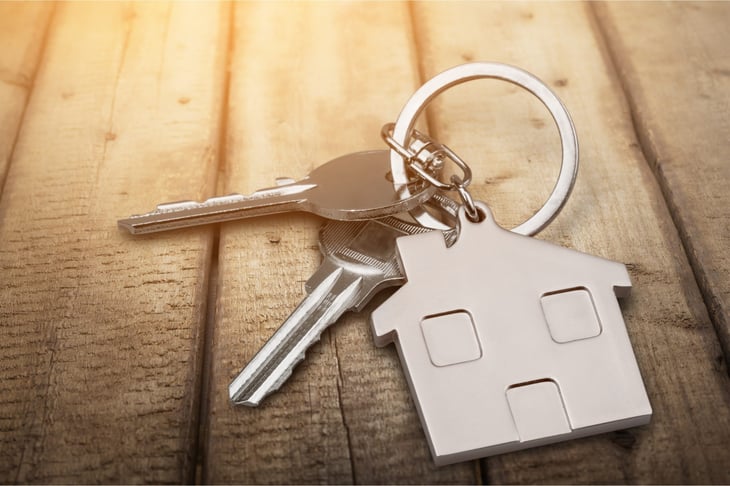
Once you find a suitable investment property, make an offer using the 70% rule to determine the maximum amount you should spend.
4. Start Renovating
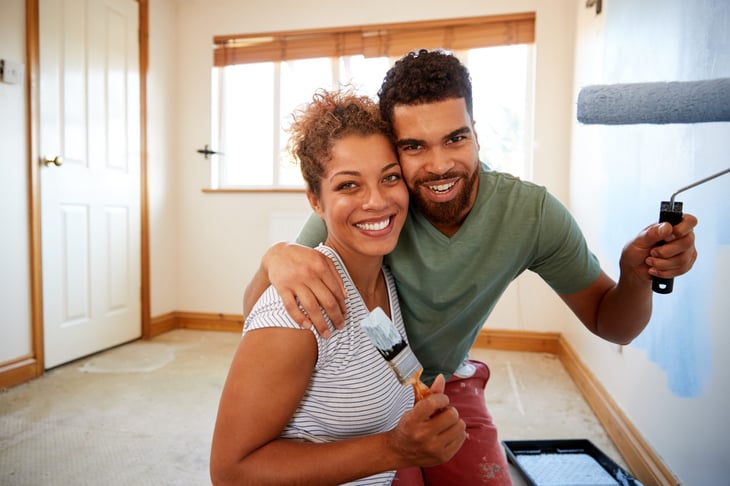
Make a plan of the renovations that need to be done and ensure a sensible workflow.
Start with the more significant tasks and end with decorating and cleaning. Next, assemble a team of helping hands to aid with tasks such as decluttering or cleaning.
Also, find reliable contractors for any work you cannot do yourself and book them in.
Avoid using the cheapest materials, but also steer clear of expensive upgrades. The middle ground is ideal for keeping you on budget while providing a decent finish.
Finally, to appeal to a broader range of buyers, leave out personal touches and large statement pieces.
5. List Your Flipped Property

With the paint drying and the house cleaned top to bottom, it’s time to list your property.
Hiring a good real estate agent can speed up the process, but if you’re looking to cut costs, be sure to take plenty of high-quality photos and maybe even a video tour to showcase your handiwork.
Next, write an informative description highlighting all the advantages of the home, the neighborhood, and nearby amenities.
6. Sell and Start Again!

Hopefully, you’ll have several offers to choose from. Pick the most attractive, taking into account that time is of the essence.
You want to be able to close quickly, so look for pre-approved buyers and be sure your home will pass the inspection.
After that, it should be smooth sailing. Pay off any loans, declare your earnings, and if you’ve got the energy, scout the market for your next flip!
Major Mistakes to Avoid When Flipping Houses

So, now you’ve seen how it’s done, it’s essential to know what mistakes to avoid along the way. Here are some common problems that can trip potential house flippers up.
1. Not Knowing Your Numbers

Knowing how much things cost is an essential skill when flipping properties. And really, you need to know the actual cost of every little expense to ensure you turn a profit:
- Closing costs
- Property taxes
- Insurance
- Utilities
- Commissions
- Building permits
- Materials
- Labor costs
Not knowing these numbers will inevitably result in overspending and eating into your profit margin. So, for best results, make your budget as watertight as possible and add at least 15%.
2. Not Planning Properly
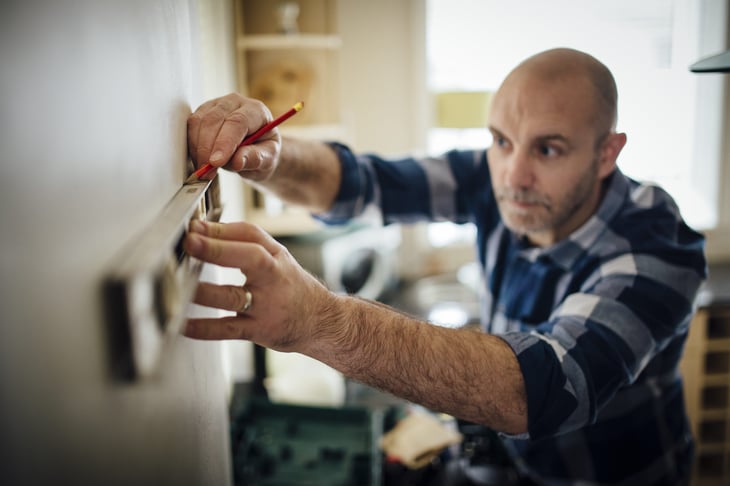
Planning your renovations properly will ensure that you get to market quicker.
Failing to do so can cause delays by having contractors blocking each other from working or you having to pull up your new floor ing to lay pipes, for example. Always think two or three steps ahead.
3. Trying to Do It All Yourself

Flipping a house requires a broad skill set. Beyond the basic trades (woodwork, plumbing and tiling), you’ll also need to know the ins and outs of real estate and understand local building regulations and codes.
But you don’t need to go it alone, and when you’re starting out, it’s best to call in the professionals. This way, you can learn as you go and are less likely to lose money.
4. Taking on Too Much
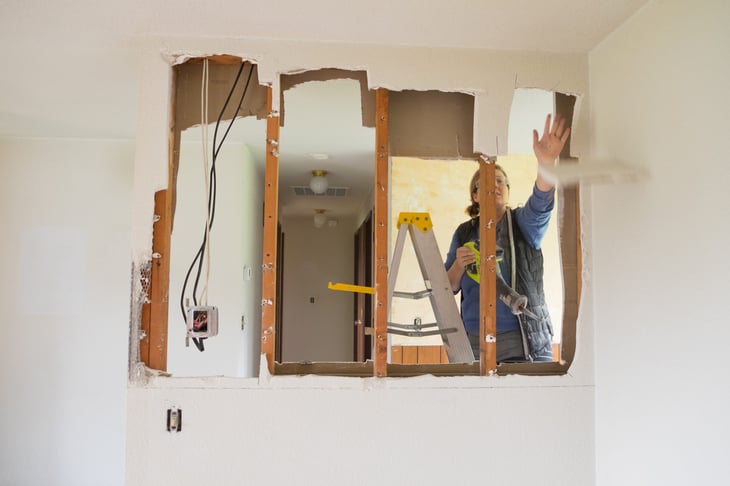
It’s all too easy to underestimate how much work goes into flipping houses, which is why many would-be house flippers take on huge renovations and never turn a profit.
Avoid anything that needs major structural work, rewiring, roof repairs or has foundation issues. Such problems take too long to fix and are usually very expensive.





Add a Comment
Our Policy: We welcome relevant and respectful comments in order to foster healthy and informative discussions. All other comments may be removed. Comments with links are automatically held for moderation.